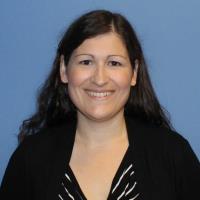
Dr. Rita Deering
Assistant Professor of Physical Therapy - General
Get Contact Info
TEACHES IN THE FOLLOWING PROGRAM(S)
Physical Therapy (DPT)
Biography
Dr. Deering has been an Assistant Professor in the Department of Physical Therapy at Carroll University since the Fall of 2019. Prior to joining the CUPT Faculty, Dr. Deering was a postdoctoral fellow in the Advanced Fellowship in Women’s Health through the William S. Middleton Memorial Veteran’s Hospital in Madison, WI. Dr. Deering’s postdoctoral research was conducted in the Badger Athletic Performance and UW Neuromuscular Biomechanics Laboratories at the University of Wisconsin-Madison, where she examined running biomechanics and abdominal muscle characteristics in postpartum women.
Education
- Post-doctoral Fellowship, William S. Middleton Memorial VA Hospital & University of Wisconsin-Madison
- Marquette University, PhD in Clinical & Translational Rehabilitation Health Science
- Marquette University, DPT
- Marquette University, BS in Exercise Science
Areas of Specialization
Pregnancy & Postpartum PT, Neuromuscular Physiology, Women’s Health, Postpartum Athletes
Scholarly and Professional Achievements
Grant Support while at Carroll University
Carroll University Faculty Development Grant, 2019-2020
Carroll University Faculty Development Grant, 2020-2021
Peer-Reviewed Publications
Deering RE, Senefeld J, Pashibin T, Neumann D, Hunter SK. Muscle Function and Fatigability of Trunk Flexors in Males and Females. Biology of Sex Differences 2017; 8:12.
Deering RE, Cruz M, Senefeld JW, Pashibin T, Eickmeyer S, Hunter SK. Impaired Trunk Flexor Strength, Fatigability, and Steadiness in Postpartum Women. Medicine and Science in Sports and Exercise 2018, 50(8); 1558-1569.
Deering RE, Senefeld J, Pashibin T, Neumann D, Cruz M, and Hunter SK. Fatigability of the Lumbopelvic Stabilizing Muscles in Women 8 and 26 Weeks Postpartum. Journal of Women’s Health Physical Therapy 2018; 42(3): 128-138.
Deering R, Pashibin T, Cruz M, Hunter SK, Hoeger-Bement M. Fatiguing Trunk Flexor Exercise Decreases Pain Sensitivity in Postpartum Women. Frontiers in Physiology (Exercise Physiology) 2019; 10(315).
Deering RE, Chumanov ES, Stiffler-Joachim MR, Heiderscheit BC. Exercise Program Reduces Inter-Recti Distance in Female Runners Up to Two Years Postpartum. Journal of Women’s Health Physical Therapy 2020; 44(1):9-18.
Deering RE, Christopher SM, Heiderscheit BC. From Childbirth to the Starting Blocks: Are We Providing the Best Care to Our Postpartum Athletes? Journal of Orthopaedic & Sports Physical Therapy 2020; 50(6): 281-284.
Learn more about Dr. Deering's current studies, publications, presentations and accolades.
Honors and Awards
American Dissertation Fellowship
American Association of University Women
Veteran’s Affairs Advanced Fellowship in Women’s Health
William S. Middleton VA Hospital/University of Wisconsin Center for Women’s Health ResearchOffice of Academic Affiliations, US Department of Veterans Affairs
CTSI/NIH Post-Doctoral TL1 Training Fellowship Grant
CTSI of Southeastern Wisconsin, Medical College of Wisconsin
National Center for Advancing Translational Sciences, National Institutes of Health
Women’s Health Research Program Grant (COMPLETED)
Medical College of Wisconsin, Department of Obstetrics & Gynecology
Neuromuscular Function in Women Postpartum
Research Assistantship
Clinical & Translational Rehabilitation Health Sciences PhD Program
Department of Physical Therapy, Program in Exercise Science
Marquette University
What is your teaching style?
My goal is to facilitate students’ self-discovery of knowledge and foster a passion for physical therapy. I believe in relating information to real-world situations as often as possible to help bridge the gap between classroom and clinic.
Why do you do what you do?
Because I love it! I love helping patients improve their quality of life. I love helping future physical therapists find and pursue their passion. I love to continue learning, whether that is by investigating research questions, or by using feedback from my students to grow as an educator.
How do you make learning engaging?
I make learning engaging by making it meaningful: finding ways to relate information to a student’s area of interest. I encourage discussion, whether in class, with me during my office hours or optional discussion sections, or in study groups outside of class.
What should students know about you?
When I’m not teaching or engaging in research, I enjoy spending time with my family outdoors, especially hiking. I also enjoy musical theater and reading.